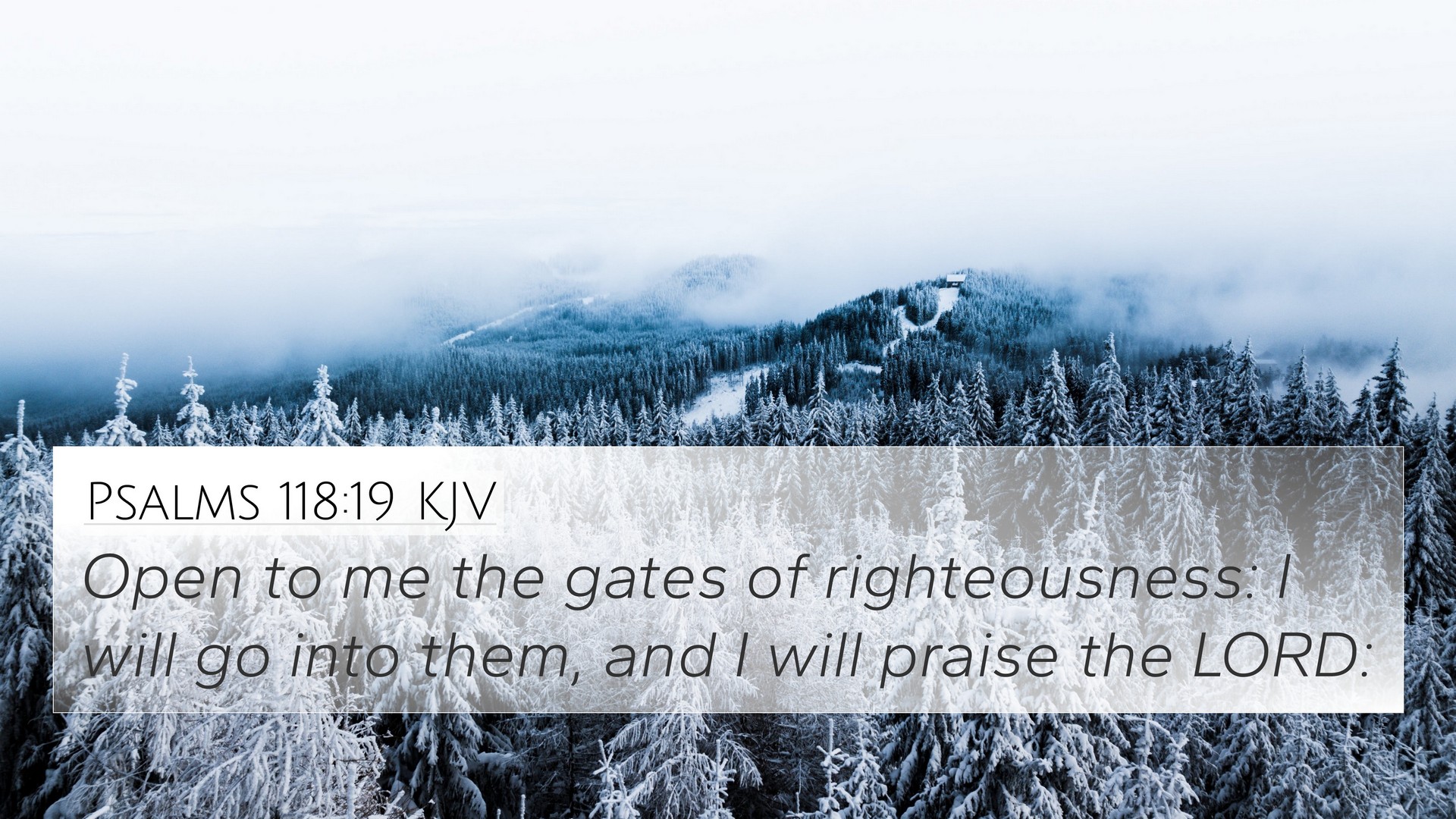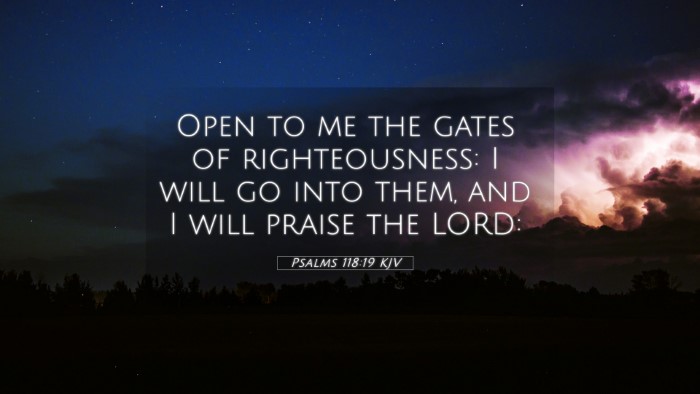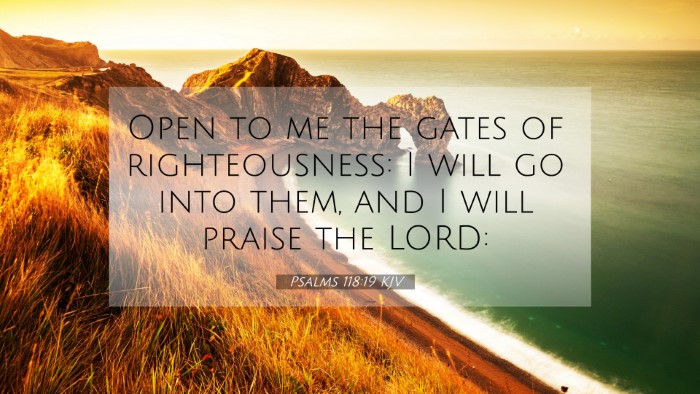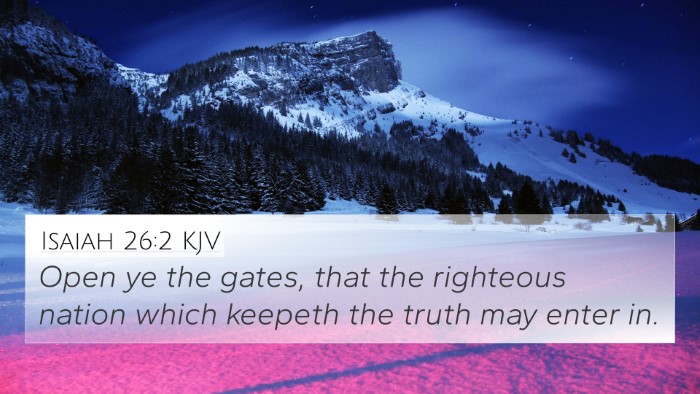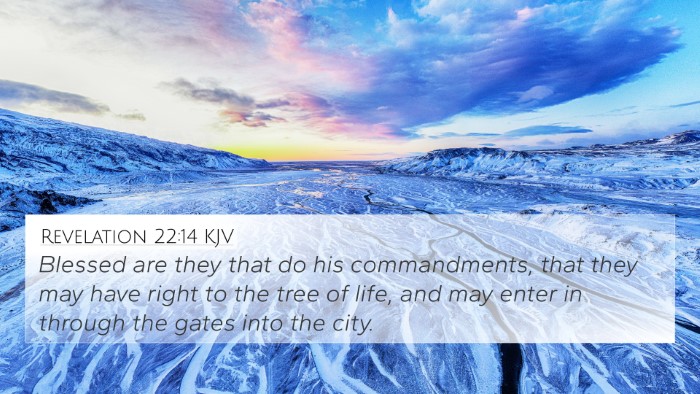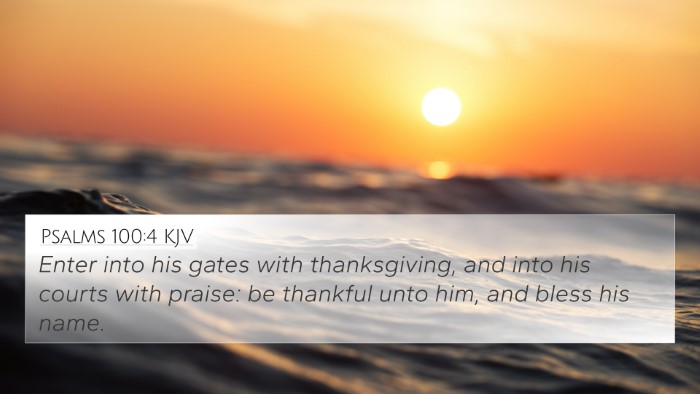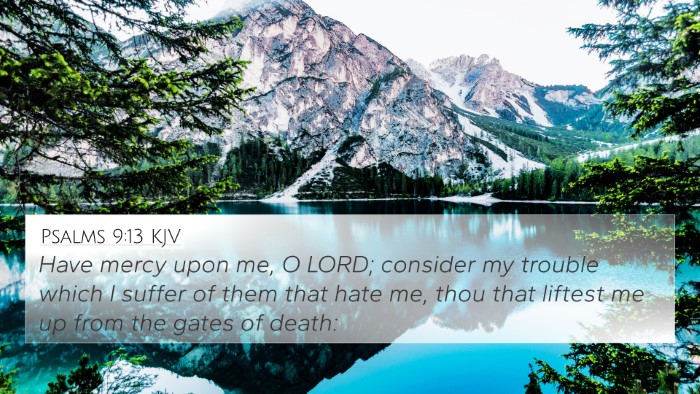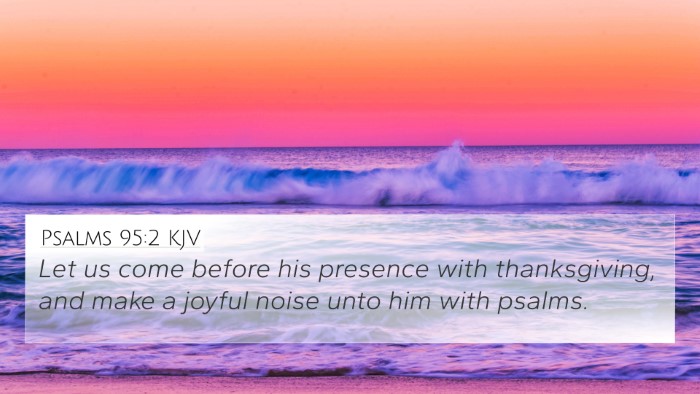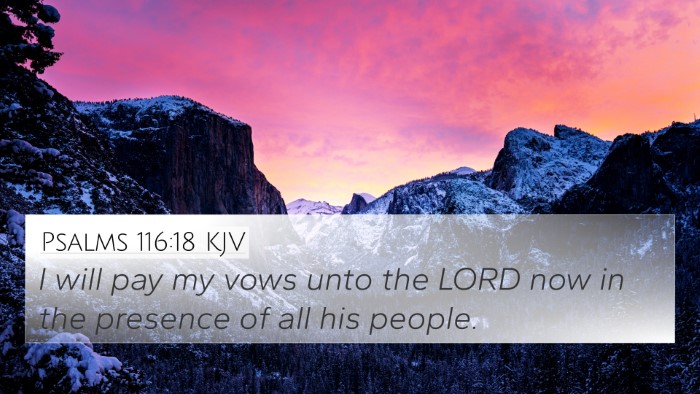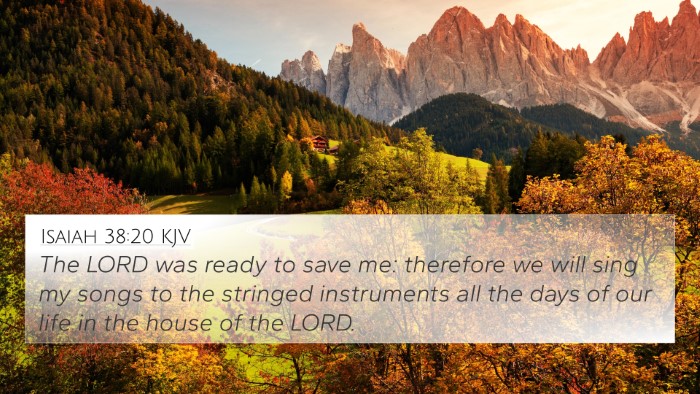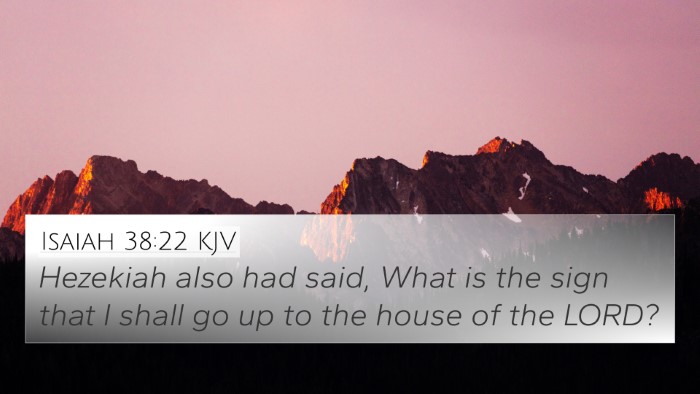Psalms 118:19 - Meaning and Interpretation
Psalm 118:19 states: "Open to me the gates of righteousness: I will go in to them, and I will praise the Lord."
This verse serves as a profound appeal for access to the gates of righteousness, emphasizing both the desire for entry and the purpose of glorifying God upon entering.
Summary of Insights from Public Domain Commentaries
-
Matthew Henry:
Matthew Henry emphasizes the significance of righteousness as an entry point. He interprets the "gates of righteousness" as those leading to a place of worship and communion with God. Henry notes that this signifies a journey into a relationship characterized by integrity and holiness. Furthermore, he highlights the intent to praise God as a crucial element of the believer’s experience.
-
Albert Barnes:
Albert Barnes focuses on the openness of these gates, which may represent divine favor allowing believers to come into God’s presence. He interprets the gates as the means of access to a community of faith where righteousness dwells. Barnes asserts that this verse echoes the joy and purpose of worship, reinforcing the importance of communal and personal praise.
-
Adam Clarke:
Adam Clarke examines the metaphor of gates, suggesting they symbolize entry into a state of righteousness given by God. He interprets the act of entering as synonymous with embracing salvation and a life given to praise. Clarke elaborates on the necessity of approaching God's righteousness with a sincere heart, emphasizing that such access is a privilege bestowed upon the faithful.
Cross-References to Psalms 118:19
Understanding Psalms 118:19 is enriched by connecting it with other scriptural texts. Here are notable Bible verse cross-references that illustrate similar themes:
- Psalms 24:3-4: "Who shall ascend into the hill of the Lord? Or who shall stand in His holy place? He that hath clean hands, and a pure heart..." This passage reiterates the prerequisite of righteousness for entering God’s presence.
- Matthew 7:7: "Ask, and it will be given to you; seek, and you will find; knock, and it will be opened to you." This relates to the openness of God's gates and the invitation to seek Him.
- Isaiah 26:2: "Open ye the gates, that the righteous nation which keepeth the truth may enter in." This verse reflects a similar desire for the faithful to access God’s sanctuary.
- John 10:9: "I am the door: by me if any man enter in, he shall be saved..." Here, Jesus identifies Himself as the gateway to salvation and righteousness.
- Hebrews 10:19-22: "Having therefore, brethren, boldness to enter into the holiest by the blood of Jesus..." This passage emphasizes the access believers have to God's presence through Christ’s sacrifice.
- Revelation 21:25: "And the gates of it shall not be shut at all by day: for there shall be no night there." This reflects the eternal accessibility of God’s presence for the righteous.
- Psalms 100:4: "Enter into his gates with thanksgiving, and into his courts with praise..." This passage instructs on the proper attitude when approaching God’s presence.
Thematic Connections
The themes of entry, righteousness, and praise are woven throughout scripture. The act of entering these gates speaks to both personal and communal elements of worship. By analyzing these connections through various passages, we find a richer understanding of what it means to approach God in righteousness and thanksgiving.
These connections manifest not just within the Psalms, but across the entirety of scripture, urging the faithful to recognize the significance of righteousness in their journey of faith.
Tools for Bible Cross-Referencing
For deeper study, employing a Bible concordance or a cross-reference Bible study tool can greatly enhance one's understanding. These resources facilitate the exploration of thematic Bible verse connections and assist in identifying connections more clearly, enriching the believer's study experience.
Utilizing a structured Bible cross-reference system also aids in discovering Bible verses that relate to each other, fostering a more robust biblical literacy.
Conclusion
Psalms 118:19 encapsulates the essence of seeking God's righteousness while embodying the joy of praise. By understanding its meaning through the perspectives of esteemed commentators and connecting it with various biblical texts, believers can uncover profound truths about worship and faith.
Furthermore, through systematic cross-referencing and thematic exploration, individuals are encouraged to delve deeper into scriptural studies, discovering the intertwined narratives and messages within the Bible.
